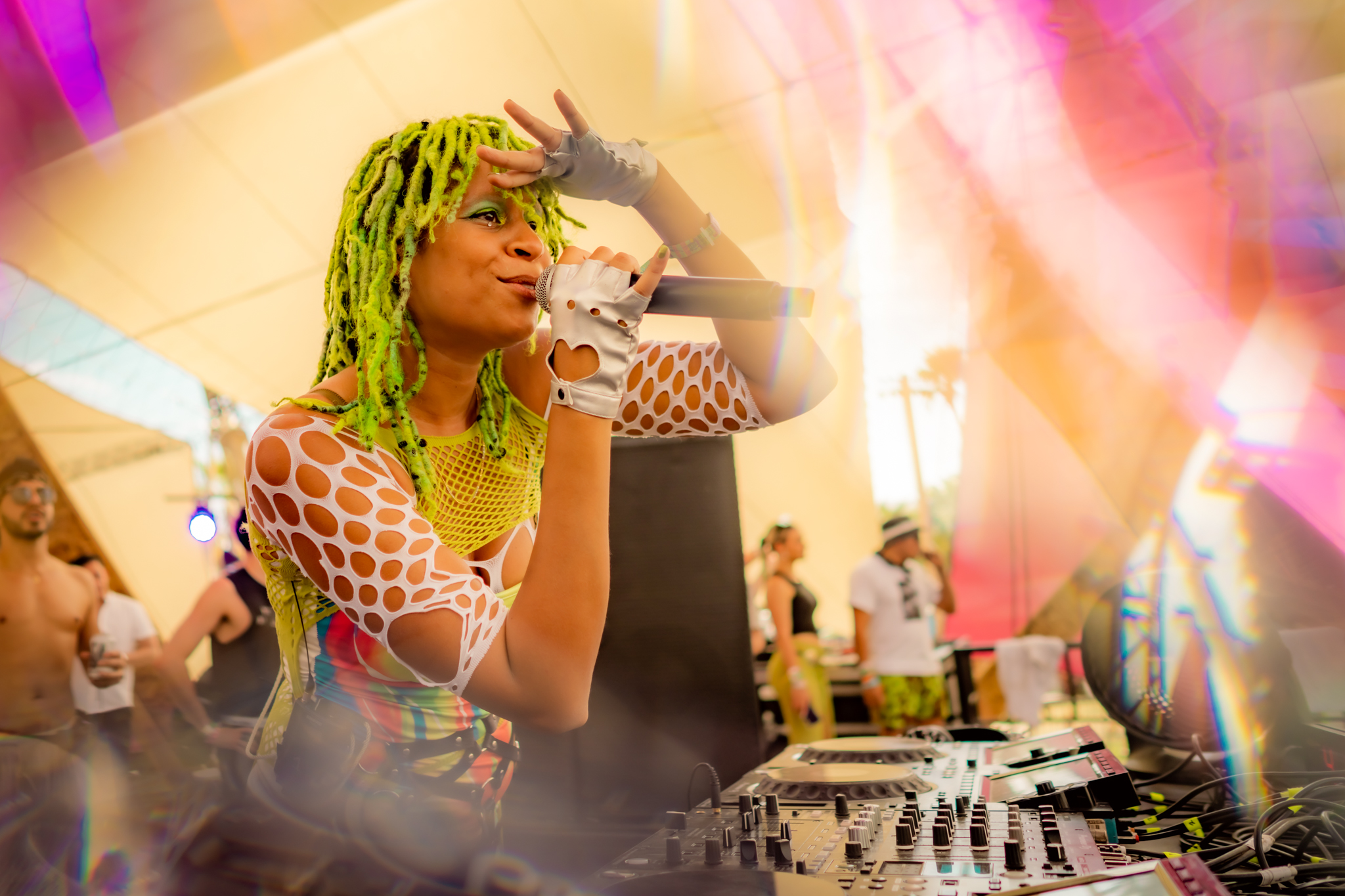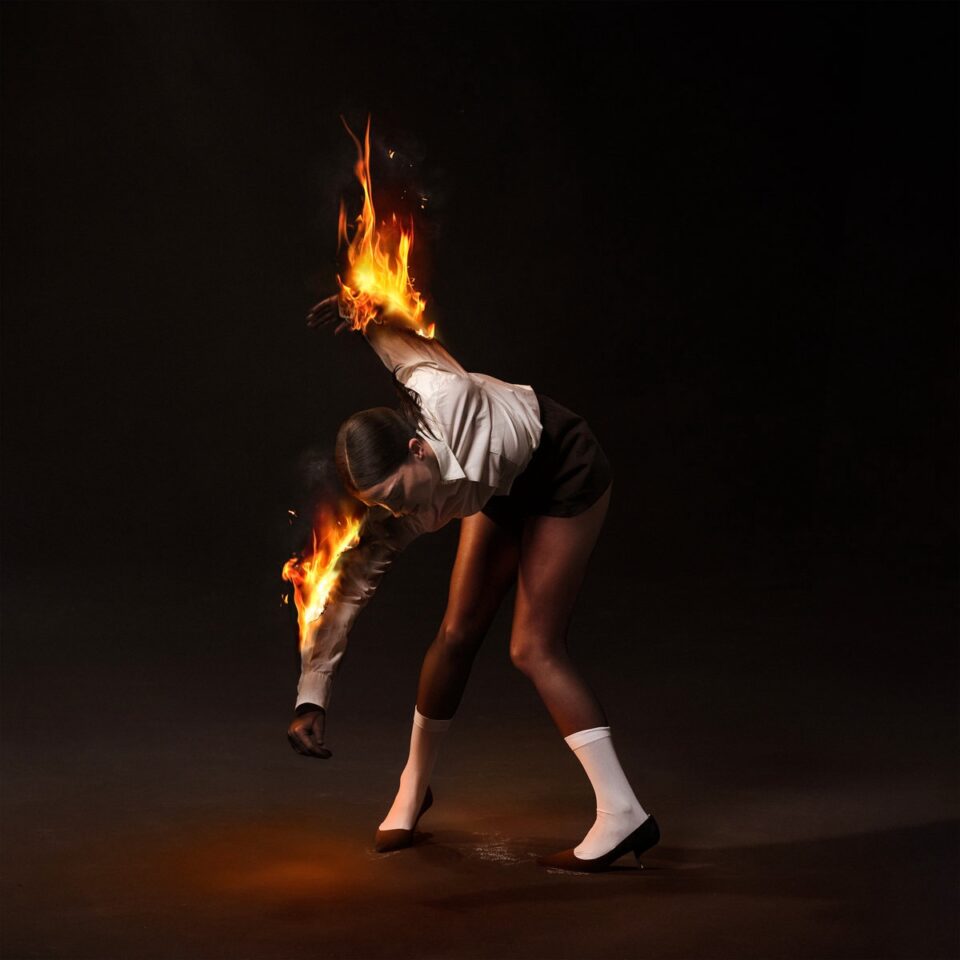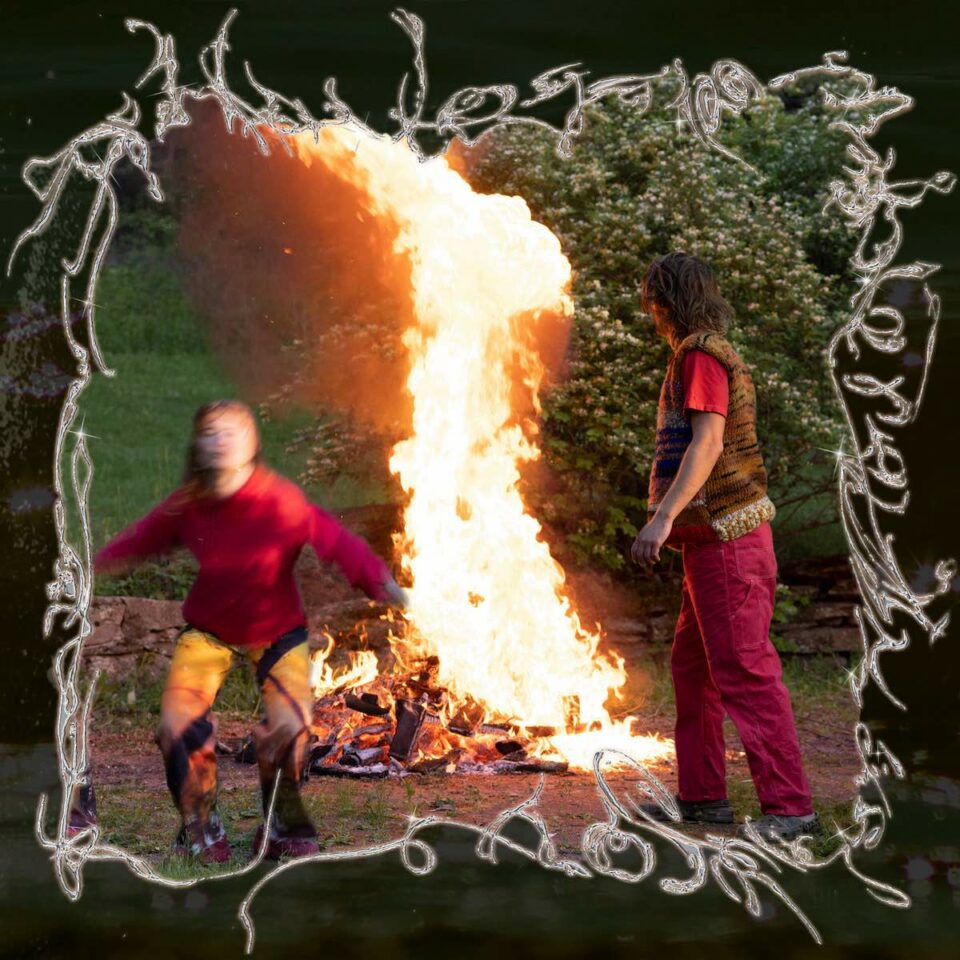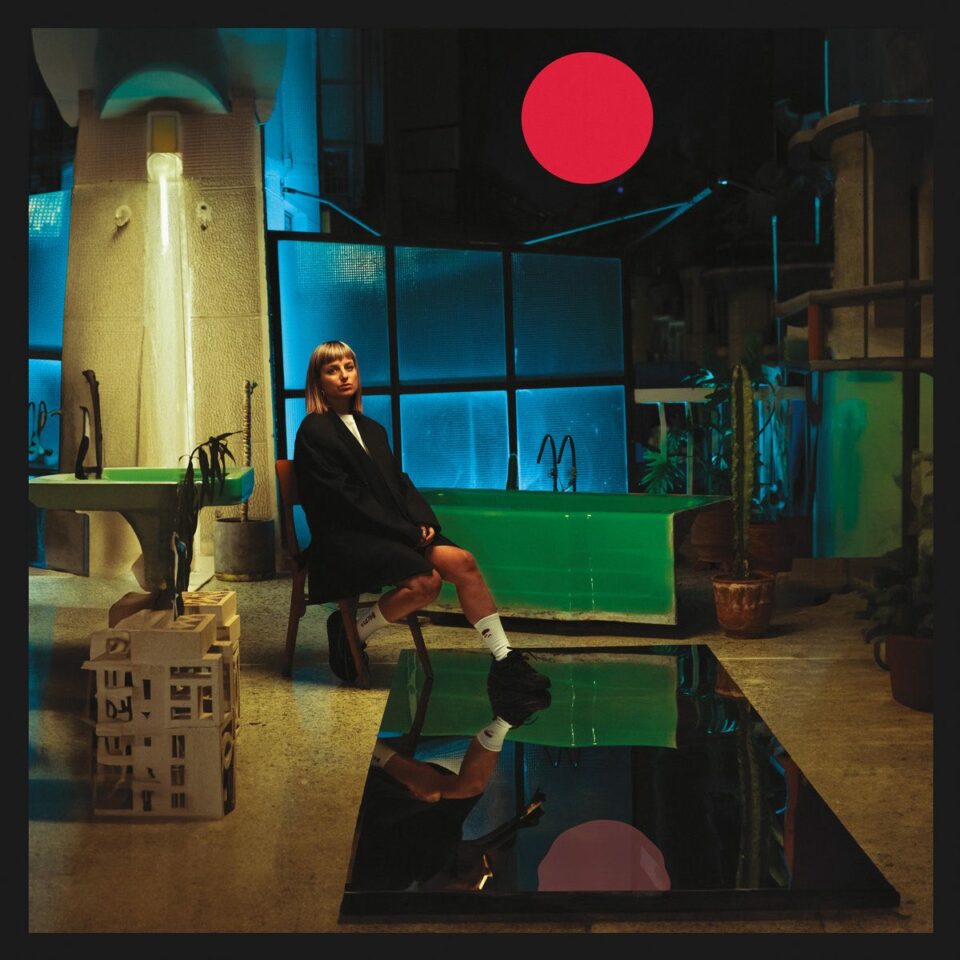The future is Aluna’s. The producer/songwriter, formerly one half of electro-pop duo AlunaGeorge, has just released her sophomore solo album MYCELiUM, which envisions a freer, diversified world of dance music. The latest chapter of her solo journey is her most formidable and euphoric, paying homage to all trailblazing dance subgenres—Afrobeats, amapiano, techno, trance, house. This project emphasizes dance music as a nutrient-dense lifesource, taking its name from the expansive root structure of fungi. A self-empowering bioluminescent web of floor-shaking bangers, MYCELiUM carves out a safe aura for people of color in a mainly white, male, Eurocentric corner of music.
Aluna is on the frontlines of this revolution, calling out erasure and further marginalization of Black people in the industry. “I can’t rest easy knowing that my work isn’t done. I’m seeing more Black women come into the space, and I love that. But I want it to be like, there’s no room for me,” she laughs. “Like, ‘OK ma’am, sit down. We’re taking over. We’ve got this.’ Until that day, I have to do what I do.”
But she’s also having a killer time while doing all this. “I’ve always sacrificed my health and myself for my music,” she says. “So on this album, I wanted to be able to invite everyone I’ve worked with to a party, and know that I’m gonna have so much fun. And that could be a party that literally has no food and no music, and we’d still have a great time.” Thankfully, there is music, and it goes electrifyingly hard.
Find the rest of our conversation below.
Following Renaissance, did you know where you wanted to go with the next album?
I definitely had a clear picture. When I’m embarking on a new area of creativity, the first thing I want to do is experiment—basically break down any boundaries that people are creatively kept in, especially when it comes to how race affects people’s perception of who’s able to do what genre. When I was growing up, it’s not like people would say, “You can’t make rock music”—but they would say, “It’s just not convincing if you do it.” And people would always say to me, “Oh, do you do R&B music?” Is that the only form of music you think I’m able to make?
When it came to doing a dance record, well, the current general opinion is that mainstream dance music is only Euro-centric house music and EDM from white male artists. On Renaissance, I was really intentional about including subgenres like dancehall or Afro-beat. I wanted high-energy and thriving tempos to capitalize on the idea of psychological freedom from the oppressions I’ve experienced.
“I’m seeing more Black women come into the space, and I love that. But I want it to be like, there’s no room for me. Like, ‘OK ma’am, sit down. We’re taking over. We’ve got this.’”
What was the research process like for MYCELiUM?
After talking to Roofeeo, we decided to devise a writing process based off what we’d read about the pioneers of dance music. We picked this moment in time where the entire industry had turned their backs on disco and all the infrastructure had been removed—having access to huge orchestral bands and vocalists and musicians and these elaborate processes of music are all gone. As a producer, what do you do now?
It’s an incredibly fun album. It must have been fun to make.
Another reason it was really fun is because, through my becoming an advocate for making things for Black women in the dance music industry, the one thing I realized I had to do was look for what I want for other young Black women coming into the industry, and other Black women already in the industry. One of the things is working with people who I feel are allies. Up until that turning point for me, I’d always put my safety and my comfort on the backburner as long as I was making great music. And that doesn’t include my relationship with George [Reid]. That was always my safe space.
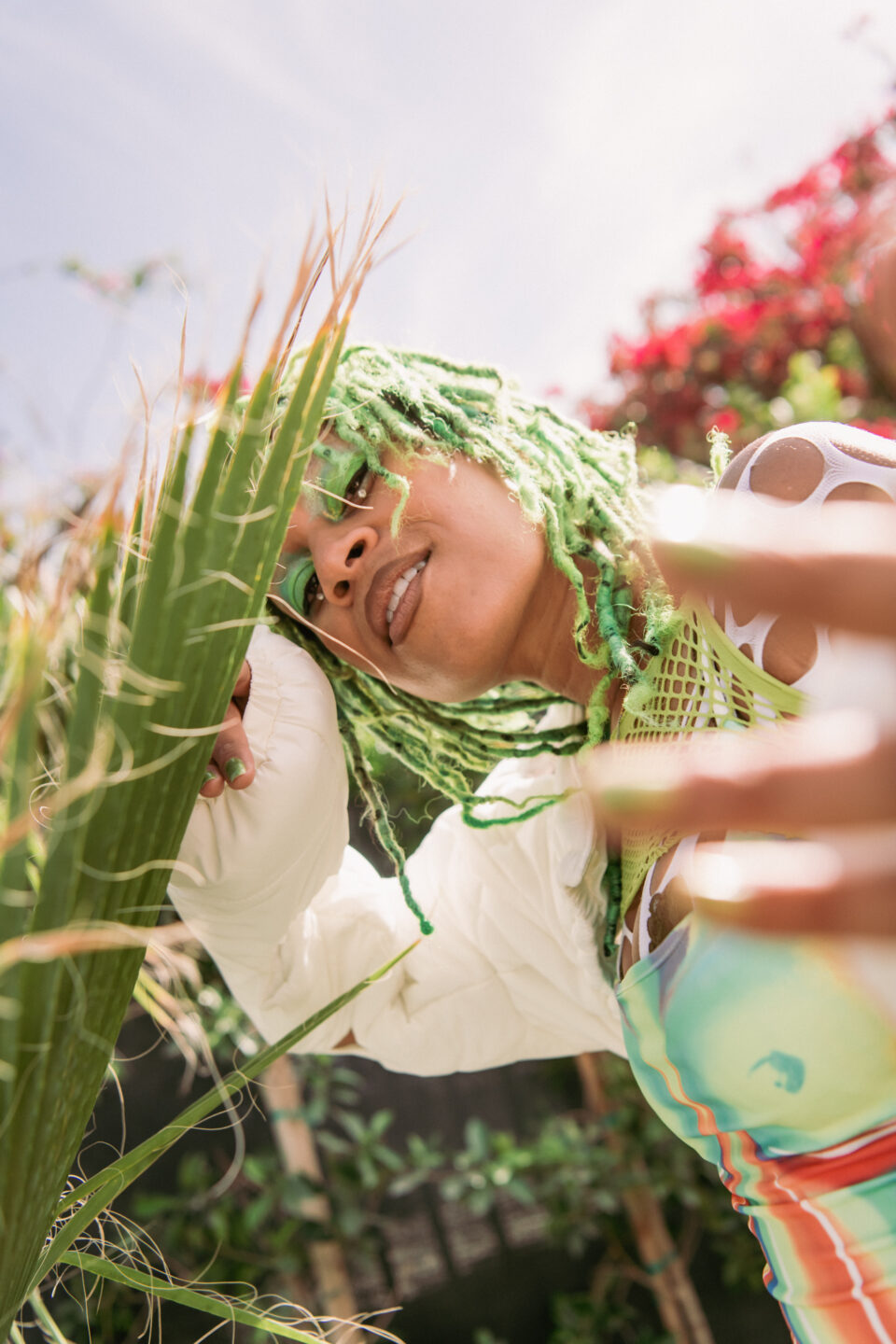
Aluna @ Coachella / photo by Jess Gallo
I’m interested in hearing about your experience creating this space with the obstacles and ramifications of today, but then also creating a world within that space.
The level of diversity you have on this album, for me, would be the ideal of the dance music industry, but that’s not our reality. So what I’ve done is set a blueprint in a way—something to spark desire for something like that to exist in the real world, not just on an album.
I was looking for the name for the connective tissue to all these organisms that works unseen in the background to trigger this decomposition of old stuff and regeneration of new nutrients and enabling new life to be born. I feel like I’ve been learning from nature how to do that in life. That’s why I chose the name MYCELiUM. The album is a reflection of a way to build community. I think music, from its origins, is something that was used in communities to help us be with each other. We’ve lost our way a little bit.
I know there are large portions of the Black community who can’t get access to being in public spaces where they can gather and rave and listen to very, very high-tempo music that creates a certain type of body high, that generates a certain type of feeling. The only reason is that it’s seen as white music. Breaking down that illusion is so important to me because it means we get access to something that we created for a purpose.
“The first thing I want to do is experiment—break down any boundaries that people are creatively kept in, especially when it comes to how race affects people’s perception of who’s able to do what genre.”
Is there any tension for you between creating something for community and a greater good and also having it be at odds with being a solo artist, trying to stand out and survive in the industry?
Absolutely. Changing from being in a duo to a solo artist cut me off from a lot of lanes I was already occupying and I had to start again. There’s something that happens when you lose your power and leverage. I was in a duo with a white man, and going solo and losing that side of the visual…I did feel very exposed because I talked about being a Black woman in dance music as well. I’ve experienced a change in how people value me. It’s a struggle to make ends meet. It’s a struggle to tour.
The reason I went solo is people asking me this question of like, “How do you feel about the fact that loads of Black people don’t know that you’re Black, [singing] the EDM songs that you’re famous for that they love?” It’s their guilty pleasure, thinking that they’re loving white music, but there’s actually a Black woman [singing]. I’m not just a sample; I wasn’t a singer hired for the day; I wrote it. It’s my song. But I’m not in the imagery or in the videos. They just don’t know. I don’t feel great about that.
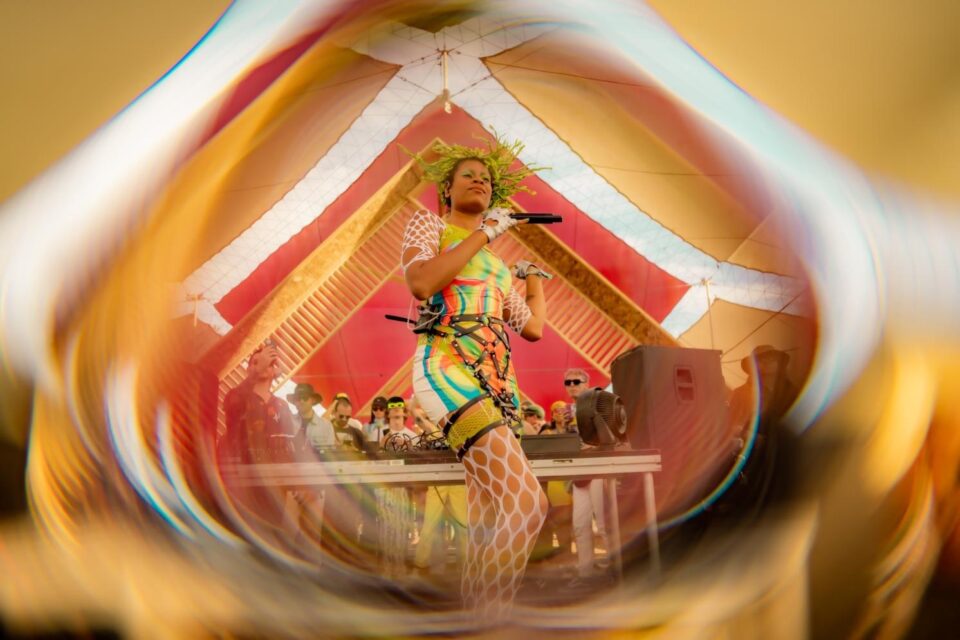
photo by Divisuals at Do Lab at Coachella
Something that’s really interesting throughout the record is the misinterpretation that the things people indulge in are superficial. But actually it’s these things that are bringing joy, and joy is the only way to live.
I’ve been asked in the past by straight, normcore people about drag queens: “Well, why do they have to dress up?” The idea of that being a lane of survival is so foreign to people. Those moments are actually few and far between when you get to do that; you get to do that for one night and everything that’s going to sustain you for the rest of the week, for the rest of the month, has to all happen in that one outfit. That one outfit has to cover up every abuse that’s been done to you.
Of course, it has to be absolutely fucking fabulous. It has to have the power to liberate you and make you feel wonderful even though you’ve been trodden on by the whole of society…in an outfit! [Laughs.] I mean, what do you think it’s going to look like? Of course it’s going to be glamorous. I think Tina Turner is an interesting example of that. She’s a beaten woman and one of the most glamorous people in rock music, and there’s something about that that’s fascinating to me and endlessly fascinating with people’s misunderstanding of it.
There’s also the glamor that the wealthy do, but that also has a darker purpose: to yield control over others or to uphold the idea of their power so people know who’s in charge in the room based on their jewelry.
“Changing from being in a duo to a solo artist cut me off from a lot of lanes I was already occupying and I had to start again.”
I’m curious about the final song, “Future,” which is thematically nice to end on in regard to wanting to change the future. That song sounds so different from the rest of the album.
I think amapiano is the future of dance music. It’s an interesting kind of music where if you dance it one way it can be relaxing. I think South Africans talk about a style of dancing where you don’t sweat, which is interesting. But then you can double time it and do crazy footwork and it becomes really high-energy. I think it’s so versatile as a genre.
South Africa is such an interesting place. And it’s not lost on me that apartheid was not that long ago. I remember being in the UK and being aware that this country is still living in segregation. What the fuck? I feel like it’s in a similar way to when a particularly healing plant grows next to something poisonous. That’s what I think about amapiano. It’s very potent.
What I’m talking about in that track is interestingly pre- this album. Lyrically, it’s the start of the album. But because I think amapiano is the future of dance music, I leave people with that to take them forward into the future. FL

